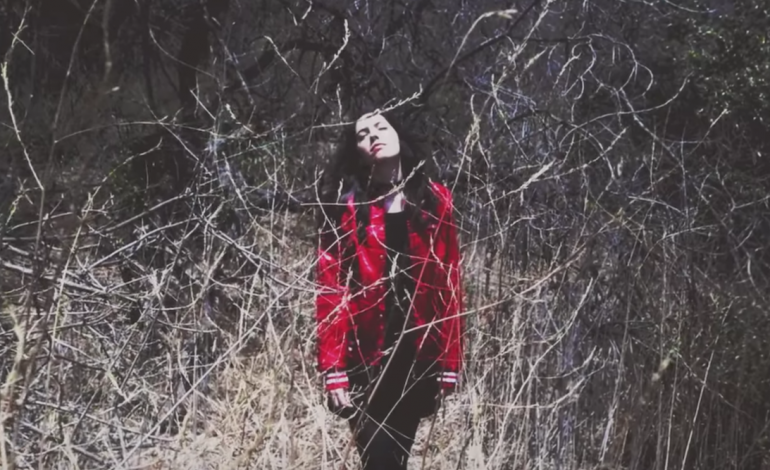

Just because it’s a Monday night, that doesn’t mean it must be mundane. And just because a set is only five songs, that doesn’t mean it wasn’t a good show. At The Clive Davis Theater in the GRAMMY Museum on August 21, Bishop Briggs proved this.
Prior to her performance, Briggs, born Sara Grace McLaughlin, sat down with Scott Goldman, the museum’s executive director, for an hour-long Q&A. Had it not been for this interview, who could have known the powerhouse singer to actually be so bubbly and genuine. Crouched over crossed legged, Briggs’ answers to Goldman’s inquiries were beyond surface-level. The audience was treated to stories that surpassed the usual tell tale of how Briggs grew up in Tokyo and was discovered in a Los Angeles lounge by an A&R rep.
Briggs and Goldman discussed how an upbringing characterized by karaoke, Motown, and gospel choir inspired her music. Her outfit, which could be described as goth tennis player chic (down to the sneakers and double buns), suggested a musician affiliated with pop, EDM, or even hip hop, but her booming vocals puts her in the ranks of the most soulful of artists. The way she paces and jitters across the stage may seem like she is endlessly consumed by intense emotion, but in fact Briggs is quite charming.
Briggs’ ability to lose herself in song and be a personable person makes sense when you know how important authenticity is to her. She listed off inspirations that included the likes of Janis Joplin, Adele and Alabama Shakes, explaining that she hopes her listeners feel “on the edge” the way she does when she listens to such riveting artists.
What is also intriguing about Briggs is that she constantly checks herself. When the interview first began, she told the audience she felt weird waving to them because she still couldn’t think they were all possibly there to see her. In talking about going from performing in small venues to opening for Coldplay in stadiums, Briggs had one explanation: mental disconnect. She told of how she would sing in coffee shops like she was in a stadium, so the only way to actually deal with a stadium was to put her mind right back in the coffee shop.
Another key point Goldman brought up was Briggs calling her relationship with music a “lifelong tragic love affair.” Melodramatic? Not in the slightest. Bishop Briggs is not just an overnight sensation. She elaborated that there are things she’s done for music that she would never do for another person. For her, the good always outweighs the bad, even if it is just a fleeting good moment in a writing session.
A deeper pondering of her feelings toward music could be heard in her final song. Briggs and her 3-man band premiered “White Flag” to the 200-person theater — with stadium bravado, no less. In it, she sings, “won’t wave my white flag no / rather die than give up the fight.” The chorus was punchy and she jumped with her arms crossed, like a boxer warming up for a match. Bishop Briggs made it clear that she has only begun to warm up in her career. With her inquisitive nature and intense perseverance, there is no doubt good things are to come her way. And for someone that sees “so much pain laced into every day,” she’ll have endless material to write about. The GRAMMY Museum were right in giving her a spotlight moment.
Setlist
River
Be Your Love
Wild Horses
The Way I Do
White Flag
